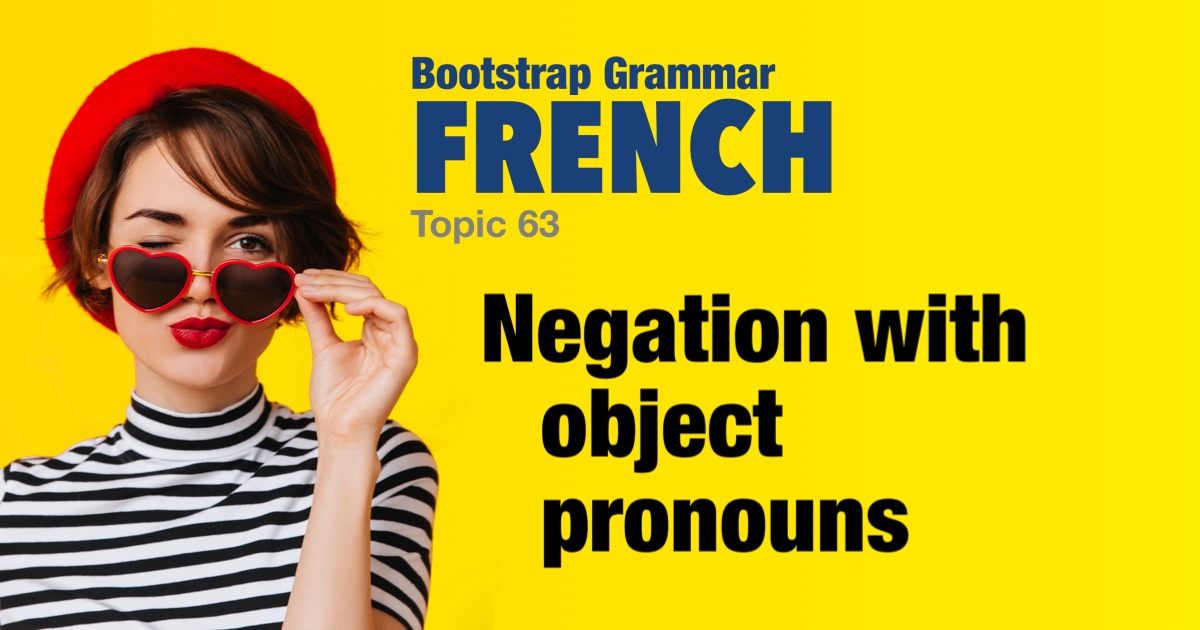French grammar - Negation with object pronouns |
|||
|
|||
To negate a sentence with a direct object pronoun, wrap ne…pas around both the object pronoun and the verb. If there are dual verbs (auxiliary + infinitive) then the ne... pas wraps around just the auxiliary verb. And the object pronoun remains immediately before the verb that acts upon it – that is the infinitive. |
| Examples: | |
|
Je ne le mange pas.
I don't eat it. |
|
|
Qui porte la valise lourde ? Elle ne la porte pas.
Who is carrying the heavy suitcase? She is not carrying it. |
|
|
Je ne vous aime pas.
I do not love you (formal). |
|
|
Tu ne m'aimes pas ?
Don't you (familiar) love me? |
|
|
Je ne l'écris pas dans le cahier.
I don't write it in the notebook. |
|
|
Il ne les voit pas.
He does not see them. |
|
|
Nous ne vous regardons pas.
We are not looking at you (formal). |
|
|
Il ne l'invite pas à la fête.
He is not inviting her to the party. |
|
|
Ces chaussures sont trop grandes - je ne les achète pas.
These shoes are too big - I am not buying them. |
|
|
Je regarde le film. Bénédicte ne le regarde pas.
I am watching the movie. Bénédicte is not watching it. |
|
|
J'aime la langue italienne, mais je ne la parle pas.
I like the Italian language but I don't speak it. |
|
|
Aimes-tu les dessins animés ? Non, je ne les regarde pas.
Do you (familiar) like cartoons? No, I don't watch them. |
|
|
Ce croissant - je ne peux pas le manger ?
This croissant - can't I eat it?
|
|
|
Tu ne veux pas le manger ?
Don't you (familiar) want to eat it?
|
|
|
Les clés - je ne sais pas où elles sont.
The keys - I don't know where they are.
|
|
 |
|



